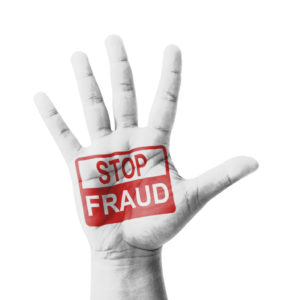Having your valuable personal information stolen and used by thieves to commit various forms of fraud like opening checking, savings and credit card accounts without your having the slightest notion that these activities are going on would have been relatively uncommon in years past. Today, it seems like it is an everyday occurrence.
Recently, a friend, who is careful with his personal information, had his information stolen, and I thought it would be helpful to tell you what he did to recover from this terrible crime. After being notified by a bank with whom he had no relationship that someone was applying for a credit card account using his information (this bank has a practice of calling the supposed applicant to verify that he wants to open an account), he called his bank to find out what to do.
My friend’s bank had a protection service which helps victims recover from fraudulent activity. Here are the steps my friend took with the help of the service:
- File a fraud report with the Federal Trade Commission which placed a ninety day alert on his credit report so that any bank or other creditor would see the alert when looking at his credit report in the future. You could ask for a credit freeze, but speak with your financial advisor about whether the freeze is a good idea in your situation.
- Ask your fraud protection service or credit reporting agencies such as Experian,TransUnion or Equifax to provide you with a copy of your most recent credit report. This report will help you determine which creditors may have used the stolen information.
- Contact your bank, brokerage firms and each of the creditors on the credit report who may have used the information to tell them that your identity has been stolen, ask that they close any accounts which may have been opened in your name and remove their inquiries from your credit report so that your credit score will not suffer.
- File a police report as soon as possible. You may need your driver’s license and another form of identification like a passport to file the report. Be sure to get a copy of the police report for your file.
- Complete an identity theft victim affidavit (you can get this form from the police department or the Federal Trade Commission website). Send the affidavit and police report to each credit reporting agency and request that a seven year fraud alert be placed on your credit report and that any adverse information be removed from your report. This alert can be renewed after the seven year period is over.
- If accounts have been falsely opened in your name, send the identity theft victim affidavit and police report to each creditor and ask them again to close any accounts opened in your name. The creditors may ask for proof of identity like copies of your social security card, driver’s license and a utility bill matching the address on your credit report.
- After about ninety days from the time you received your first credit report, request that the credit reporting agencies or the fraud protection service provide a copy of the most current report to you. This will allow you to see if other creditors have been contacted by the thief using your information. If additional creditors appear on the report, each of those creditors should be contacted as explained above.
Of course, to lessen the possibility of having your identity stolen, guard your personal information as best you can. Consider using a lockbox to store your computer passwords, social security information, passport and credit cards which are rarely used. Avoid placing any personal information on your computer if possible including emailing or texting this information. Changing your computer passwords often is also a good idea. Ask your bank or brokerage firm to place as much security as it can on your accounts so that only you will know how to access them.
Luckily, my friend avoided any personal financial loss by acting quickly and getting useful advice from his fraud protection service.
